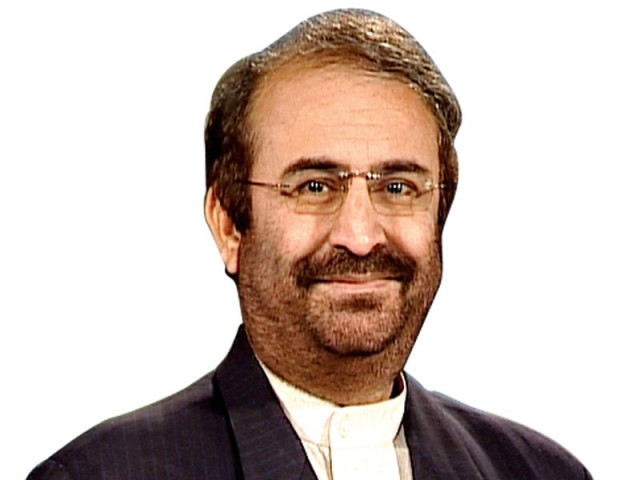Hopes for peace dashed over Taliban’s ‘unwillingness’ to talk
Sartaj Aziz stated insurgents are not interested in negotiating with the Afghan regime.

Sartaj Aziz stated insurgents are not interested in negotiating with the Afghan regime.
Hopes are dashed, for now, of an urgently-needed political settlement in Afghanistan after Pakistan’s national security Adviser Sartaj Aziz stated Taliban insurgents are “unwilling to talk to the Afghan High Peace Council.”
Complying with President Hamid Karzai’s longstanding demand, Pakistan allowed the council’s chairman, Salahuddin Rabbani, to secretly visit senior Taliban leader Mullah Abdul Ghani Baradar last month, who Karzai believes could be useful in facilitating the peace process.
Despite the Taliban’s firm stance of not talking peace with Kabul, Prime Minister Nawaz Sharif agreed to arrange a meeting between Afghan negotiators and Baradar. Furthermore, disregarding the insurgent group’s policy that a detainee cannot represent the movement, Nawaz assured Karzai during his visit to Kabul on November 30 that he will ensure additional sessions with Baradar are arranged.

On the other hand, the Taliban insists “every leader is stripped of his title if arrested.” The same applies to their former second-in-command.
Much to the dismay of Afghanistan’s peacemakers, Rabbani returned empty-handed from his Pakistan visit between November 20 and 21. A senior Afghan Taliban leader said Baradar had in the past refused to talk to Afghan officials when meetings with him were being pursued.
The meeting between Rabbani and Baradar was kept so clandestine that the peace chief did not even inform other members of his delegation, which included Asadullah Wafa and Masoom Stanakzai. Diplomatic sources familiar with details told The Express Tribune
of how Rabbani was airlifted from Islamabad to meet Baradar.
Peace council insiders say Rabbani had briefed the council members of his visit once he returned to Kabul and “shared his disappointment at the lukewarm response from the detainee.” Sartaj Aziz also admitted this week the Taliban leadership had not authorised Baradar to talk to the peace council and neither is the insurgent group interested.
The adviser suggested the Afghan leadership to instead establish informal contact with insurgents residing in Afghanistan and Qatar. But Karzai fumbled by protesting the opening of the Taliban office in Qatar earlier this year, derailing the process, which remains at a standstill since then.

Things could still change, perhaps for the better, if Karzai eases opposition against the insurgents ‘office,’ who insist of having one in a ‘neutral’ country.
Afghan analysts believe Pakistan and other neighbouring countries must play a positive role as Nato draws down and completely withdraws next year.
Former Afghanistan National Journalists Union president Abdul Hameed Mubariz says Pakistan must rethink what it achieved from past “interference” during the Soviet invasion. “Even though Pakistan accepted four million Afghan refugees, majority of Afghans are against Pakistan. They must analyse why Afghans have turned against Pakistan,” he told The Express Tribune.
Pakistan remains in a fix over its possible role in the Afghan reconciliation process, especially in the face of pressing concerns after foreign forces pull out. Some are speculating the country [Afghanistan] may face “dangerous events.”
PM Sharif, who was at the forefront of brokering peace among Afghan factions during his first tenure in 1993, must take into account how Afghanistan slipped into a civil war despite the Islamabad Peace Accord. It failed primarily because there was no guarantor to implement the agreement.
Published in The Express Tribune, December 21st, 2013.



1724319076-0/Untitled-design-(5)1724319076-0-208x130.webp)















COMMENTS
Comments are moderated and generally will be posted if they are on-topic and not abusive.
For more information, please see our Comments FAQ